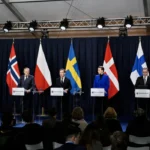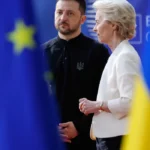The Manchester Islamic Centre, also known as Didsbury Mosque, became the center of attention in the media after the tragic 2017 Manchester bombing. However, recent revelations have uncovered a deliberate smear campaign orchestrated by the United Arab Emirates government against the mosque. The campaign was brought to light through leaked documents obtained by the French newspaper Mediapart and later shared with journalists across Europe and the Middle East.
The Targeted Campaign
Between 2017 and 2020, a Swiss private intelligence firm called Alp Services reportedly targeted numerous organizations and individuals, primarily Muslims, in at least 13 European countries. The leaked documents revealed the extensive nature of this orchestrated campaign.
Didsbury Mosque in the Crosshairs
The smear campaign against Didsbury Mosque began in 2018, shortly after a BBC news report alleged that former imam Mustafa Graf had advocated for armed jihad in a sermon. The objective of this campaign was to establish a connection between Graf, the mosque, and the International Union of Muslim Scholars (IUMS).
The IUMS, based in Qatar, has been designated as a terrorist group by the UAE due to its alleged ties to the Muslim Brotherhood. By addressing the grammar and spelling errors, and enhancing the language used, the revised writing becomes more engaging, professional, and comprehensible.
False Connections and Fabricated Articles
A malicious campaign was orchestrated, involving the creation of online articles in various languages, using fake identities to falsely link the mosque, the bombing, the Muslim Brotherhood, and the Islamic State (IS) group.
These articles aimed to portray the Muslim Brotherhood and IS as intertwined, with the former discreetly recruiting for the latter. Furthermore, Wikipedia pages related to the Manchester bombing were tampered with, adding sections titled “Links with the Muslim Brotherhood.”
Unfounded Accusations
Officials from Didsbury Mosque vehemently denied any association with the Muslim Brotherhood. Fawzi Haffar, the mosque’s chair, firmly distanced himself from the group and dismissed the Emirati smear campaign as a baseless attempt to tarnish the mosque’s reputation. Mustafa Graf, the former imam, attributed the campaign to his support for democracy in Libya, which clashed with the UAE’s backing of Libyan commander Khalifa Haftar.
Impact and Response
The campaign aimed to discredit Didsbury Mosque, along with other targeted individuals and organizations, by accusing them of alleged links to the Muslim Brotherhood and Qatar. However, it is important to note that the mosque had already undergone scrutiny following the Manchester Arena bombing. The official inquiry concluded that the mosque played no role in the radicalization of the bomber, Salman Abedi.
The Response from the Charity Commission
The attempts made by the UAE to inform the Charity Commission about the mosque had minimal impact, as the regulator had already conducted a visit to the mosque and implemented an action plan to enhance governance. However, officials from Didsbury Mosque expressed doubt regarding the Commission’s response to the UAE’s efforts to tarnish their reputation.
Safeguards on Wikipedia
The smear campaign also extended to Wikipedia, where articles were edited to spread false connections between the mosque and the Muslim Brotherhood. The Wikimedia Foundation, which oversees Wikipedia, has established measures to combat disinformation and harmful content on the platform.
Unveiling the UAE’s Smear Campaign against Didsbury Mosque has shed light on the covert and extensive efforts to damage the reputation of Muslim organizations and individuals throughout Europe. The mosque’s officials have vehemently denied any affiliation with the Muslim Brotherhood and have emphasized their dedication to promoting peace and understanding. The impact of such campaigns raises concerns about the manipulation of public opinion and underscores the importance of remaining vigilant against disinformation and smear tactics.






